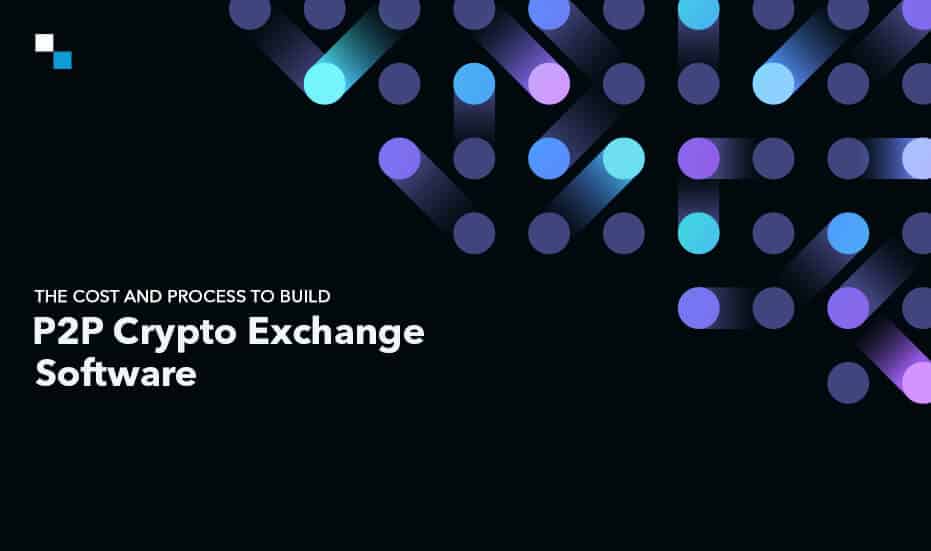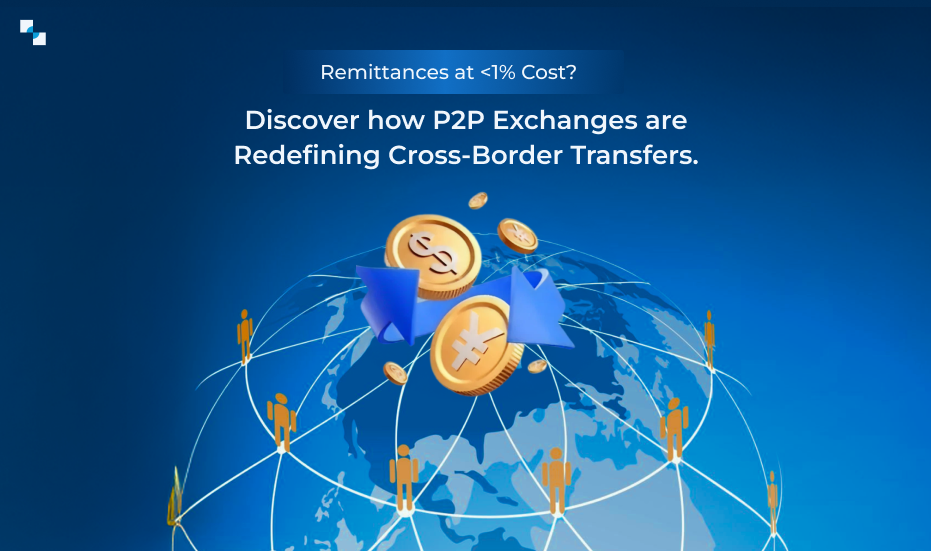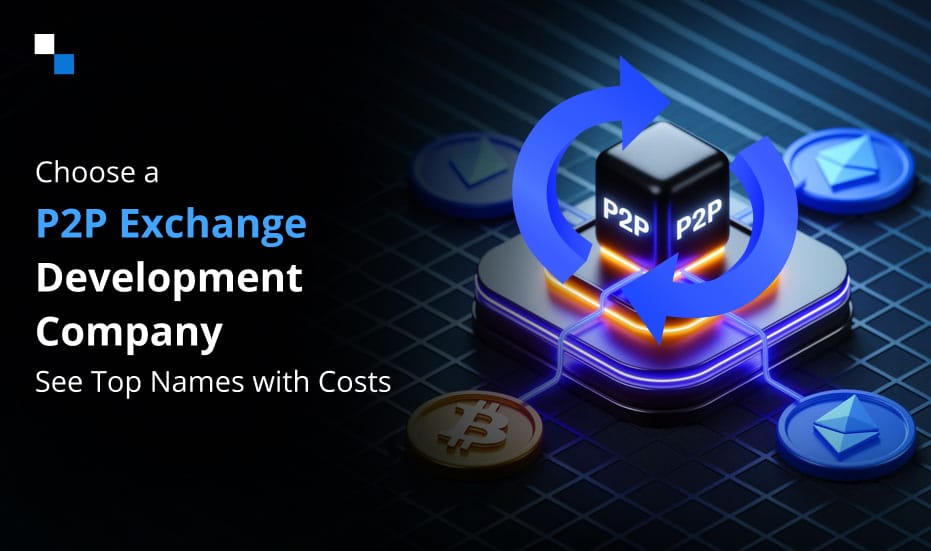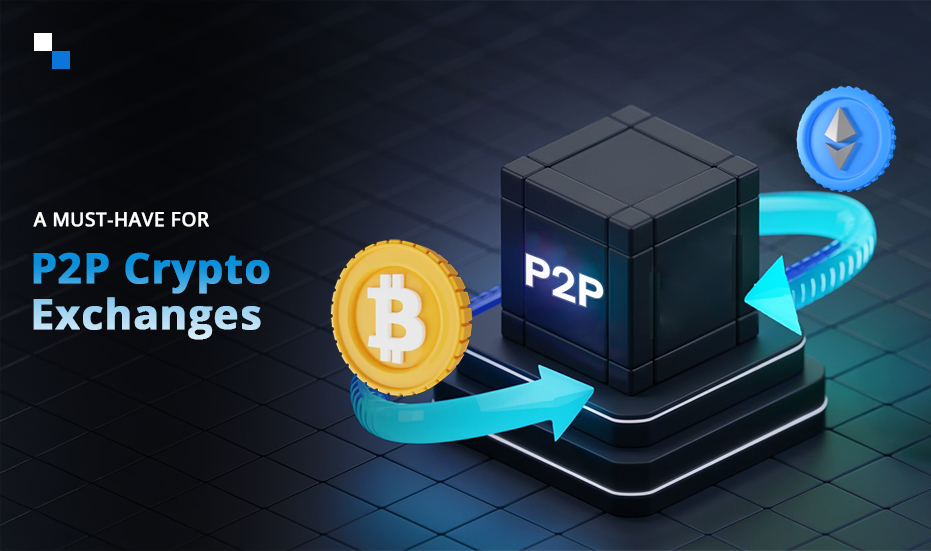Peer-to-Peer (P2P) exchanges have emerged as great options of decentralization, providing users with the liberty to trade directly with one another. As the demand for P2P crypto exchange software continues to grow, understanding the details of developing such platforms becomes important.
Let us gain insight into the complexities of P2P crypto exchange development, covering everything from associated costs to a step-by-step guide for a seamless journey.
Costs Involved in P2P Crypto Exchange Development
Embarking on a P2P crypto exchange development journey involves financial considerations. The following is a detailed breakdown of the key costs:
- Development Team
The backbone of your project is P2P crypto exchange development company. The development cost depends on the size of the team, including the developers, designers, and project managers, as well as their experience and expertise.
- Legal and Regulatory Compliance
When it comes to launching a P2P crypto exchange, you need to comply with the local jurisdictions where you intend to launch your exchange. Complying with these jurisdictions and regulations demands legal consultations, licensing fees, and compliance software. These costs can vary significantly depending on the jurisdiction.
- Security Infrastructure
Security is crucial in the world of crypto trading, and the integration of right security features is one of the most critical aspects of P2P crypto exchange software development. Expenses include implementing security protocols, penetration testing, and performing smart contract audits.
- Technology Stack
The chosen technology stack influences the cost of developing a P2P crypto exchange. You need to consider costs related to blockchain integration, smart contract development, server infrastructure, and cloud services.
- User Interface (UI) and User Experience (UX) Design:
A visually appealing and intuitive interface is crucial for an exchange to attract and retain users. An experienced P2P crypto exchange development company knows how to build intuitive, self-explanatory design based on their understanding of user journey and behavior. However, it can cost more than building any ordinary user interface design.
- Payment Integration
Integrating different payment methods can also influence the cost of P2P crypto exchange development. The higher the number of payment methods to be integrated, the higher the cost of development.
- KYC/AML Solutions
Developing and integrating Know Your Customer (KYC) and Anti-Money Laundering (AML) solutions is necessary for any crypto exchange and they can influence the overall development cost.
- Customer Support
Having 24/7 customer support can be a great solution to attract and retain users on P2P crypto exchange software. However, setting up robust customer support channels, hiring agents and training them to answer user inquiries can add up to your development cost.
- Server Hosting and Maintenance
Hosting your exchange platform involves costs for server space, bandwidth, and continual maintenance and upgrades.
- Marketing and Promotion
People would not know until you tell them. Pre-launch and post-launch marketing activities are essential to create awareness of your exchange and bring users to your platform. Promoting your P2P exchange requires investment in marketing, advertising, and potential partnerships to attract users. A P2P crypto exchange development company offering end-to-end services can help you with your marketing initiatives too.
- Compliance Audits
Periodic audits are necessary to ensure ongoing compliance to regulatory requirements, which requires additional audit fees.
- Scaling and Upgrades
As your P2P crypto exchange software grows, it becomes important to invest in scaling infrastructure, adding new features, and staying competitive.
- Legal Contingency
It is advisable to set a budget for potential legal disputes or issues that may arise during the operation of your P2P crypto exchange.
P2P Crypto Exchange Development Step-by-Step
Building a P2P exchange involves a meticulous journey. Here is a step-by-step guide to navigate this intricate process.
Market Research and Feasibility Analysis
- Identify your target audience, competitors, and market trends.
- Evaluate the feasibility of your P2P exchange project by assessing its potential for success and profitability.
Define Your Business Model
- Determine how you will generate revenue – will it be through trading fees, premium features, or other monetization strategies.
- Decide on the scope of services that your P2P crypto exchange will offer, such as the range of cryptocurrencies and payment methods supported.
Legal and Regulatory Compliance
- Research the regulatory requirements for P2P crypto exchange software in your jurisdiction and any other regions you plan to operate in.
- Consult with legal experts to ensure compliance with KYC/AML regulations and other legal requirements.
Technical Partner
- Partner with a skilled P2P crypto exchange development company with expertise in blockchain development, security, UI/UX design, and project management.
- Ensure transparency within the team to ensure smooth collaboration and efficient project management.
Select Technology Stack
- Choose the appropriate technology stack for your P2P crypto exchange software, including blockchain platforms (e.g., Ethereum, Binance Smart Chain) and programming languages.
- Decide whether you want to build your exchange from scratch or use existing exchange software solutions based on the requirements and timeline of your project.
Design UI and UX
- Develop an intuitive and user-friendly interface that simplifies trading for your users.
- Pay attention to security features and ensure a responsive design for both mobile and desktop platforms to enhance the user experience.
Smart Contract Development (Optional)
- If your P2P crypto exchange software involves escrow services, consider developing smart contracts to automate and secure the trading process.
- Smart contracts can add an additional layer of trust and transparency to P2P transactions.
Security Implementation
- Prioritize security by implementing robust measures, including encryption, cold storage for user funds, and multi-factor authentication.
- Conduct penetration testing and code audits to identify and address vulnerabilities in your platform.
Integration of Payment Methods
- Integrate a variety of payment methods, such as bank transfers, digital wallets, and payment gateways, to cater to a diverse user base.
- Ensure smooth and secure payment processing to enhance user convenience and build trust.
KYC/AML Integration
- Implement robust Know Your Customer (KYC) and Anti-Money Laundering (AML) procedures to verify user identities and comply with regulatory requirements.
- Store user data securely and ensure compliance with privacy regulations to protect user information.
Testing and Quality Assurance
- Thoroughly test your P2P crypto exchange software for functionality, security, and performance before launching it to the public.
- Conduct unit testing and end-to-end testing to identify and address any issues or bugs in the system.
Launch and Marketing
- Launch your P2P exchange to the public and initiate marketing and promotion efforts to attract users.
- Consider partnerships, affiliate programs, and referral bonuses to incentivize user acquisition and build a community around your exchange.
Customer Support Setup
- Establish robust customer support channels, including live chat, email, and dedicated support agents.
- Provide training to support agents to handle user inquiries and issues effectively, ensuring a positive user experience.
Continuous Improvement
- Monitor user feedback and analytics to identify areas for improvement in your P2P crypto exchange software.
- Implement continuous updates and improvements based on user preferences, market trends, and technological advancements.
Security and Compliance Audits
- Conduct regular security audits and compliance checks to ensure the ongoing safety of user funds and data.
- Audit your exchange for any potential security threats and adapt your security measures to evolving industry standards.
Scaling and Future Development
- As your P2P exchange gains traction and user base grows, invest in scaling your infrastructure to handle increased traffic and transactions.
Why Choose Antier for P2P Crypto Exchange Development?
With real-world experience in blockchain development, we bring our expertise and knowledge to the table. Our team of blockchain engineers is adept at building customized P2P crypto exchanges that align with the unique requirements and vision of each client. We are known for our commitment to security, focus on integrating robust measures to ensure the safety of user funds and data. With our emphasis on scalability, innovation, and customer satisfaction, we have emerged as a trusted P2P crypto exchange development company.
Connect with our subject matter experts to discuss your needs for a world-class P2P crypto exchange software.







